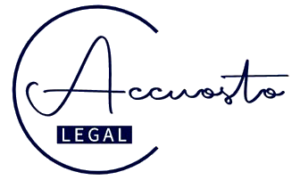HOW TO PROTECT A COMPANY’S INTANGIBLE ASSETS
Logically, business and creative people worry about protecting their abstract assets: inventions, designs, slogans, their product or service´s packaging, etc. It’s an intelligent stance: their creation involves a lot of time, effort and money. This creation ends up being worth something of great value, giving the creative company a competitive edge in the market.
In this article we will discuss some ideas on how to protect these intangible assets in Spain. Protection has two steps: firstly, protection when they are created and secondly, protection when they are attacked by a third party.

PROTECTION OF CREATIONS
1. INTELLECTUAL / INDUSTRIAL PROPERTY REGISTER
Intangible assets, created during the course of business activity, can usually be grouped under the one concept of INTELLECTUAL/INDUSTRIAL PROPERTY: Most of them can be registered in Spain under different names: brands, designs, patents, intellectual property.
Spanish laws protect these intangible assets: they try to avoid third parties appropriating (or benefitting from) someone else’s creative efforts. They want to guarantee freedom of creation and free competition within the market. This central idea of market protection is contained in Article 6 of the Spanish Law of Unfair Competition.
- 1. Patents and Models
According to Article 4 of the Spanish Patent Law, new inventions can be patented. The latter includes any inventive activity susceptible to industrial application. That means the process/product to be patented cannot be ‘something’ that existed before nor even published scientifically.
- Inventions can be registered as a Spanish patent or as a patent
- If the invention is of minor importance it can be registered as a Model
- 2. Industrial Design
According to Article 1 of Spanish Industrial Design Law, design is the product’s appearance which it derives from its outlines, contours, colours, shape, texture or materials. According to Article 2, all design which fulfills legal requirements can be registered with the Spanish Design Register.
- 3. Intellectual Property
According to Article 10 of the Spanish Intellectual Property Law, original creations are intellectual property in Spain: literary, scientific and artistic work, music, film, computer programmes, publicity; in whatever means/medium, tangible or untangible.
- Ideas cannot be registered in Spain. Intellectual property has to be stated in a piece of writing or other medium. Once stated, it can be protected through the Spanish Register or a notarial deposit.
- The act of registering does not prove that the work is original.
- 4. Brands
A brand can also be acquired in Spain as property, generally, by registering it: Article 2 of the Spanish Trademarks Law. According to Article 4, a brand is (1) a whole sign which (2) can have graphic representation and (3) distinguishes itself from other products/services on the market. Therefore, words, phrases, logos, drawings, etc, can be brands.
- 5. International Arena
Previous Spanish registrations can be complemented with supranantional registrations. With an international extension to other countries, from Spanish registers. In this way, for example, the trademark is internationally protected.
On the other hand, European registers also exist.
II.SUBSEQUENT CONTROL OF INTANGIBLE ASSETS
Once protected, through its registration, how can intellectual / industrial property be controlled?
1. Legal Audit
The most immediate control is carried out through processes of ‘Due Diligence’ or IP rights legal audit. The company compares: on the one hand, the methods which are used to produce it, and the products which are made, and/or its presentation; and on the other hand, the registrations held by the owner. The objective is to see if what is being ‘used’ is ‘protected’ and vice versa.
2. Contracts
The second form of control is a contract. Any use by third party of industrial / intellectual property should be regulated by a written contract. In this way, it is categorically stated: who is the owner of these rights, what the third party can do (and not do) with this property, who is the owner of the new rights which is at the heart of this co-operation.
The most usual way of cooperation in Spain is a License Contract: the registered holder allows a third party the right to exploit it in exchange for a royalty.
Santiago Nadal

